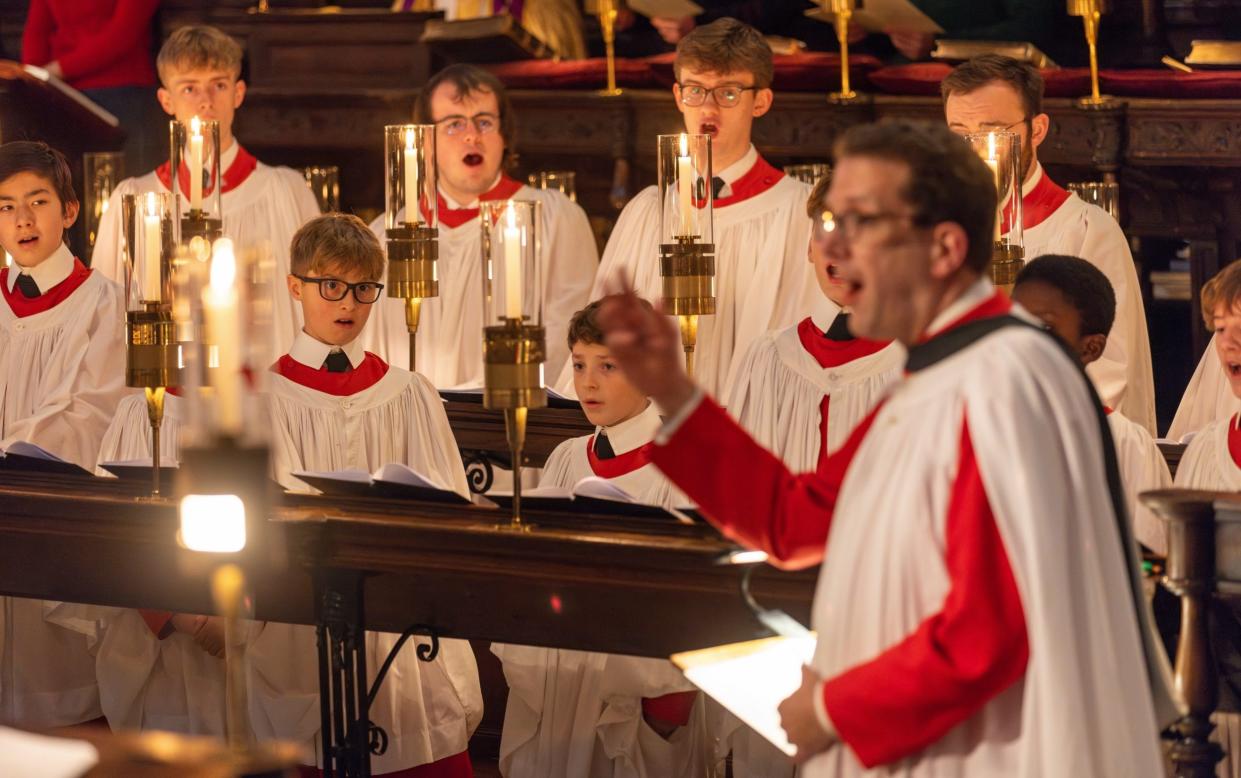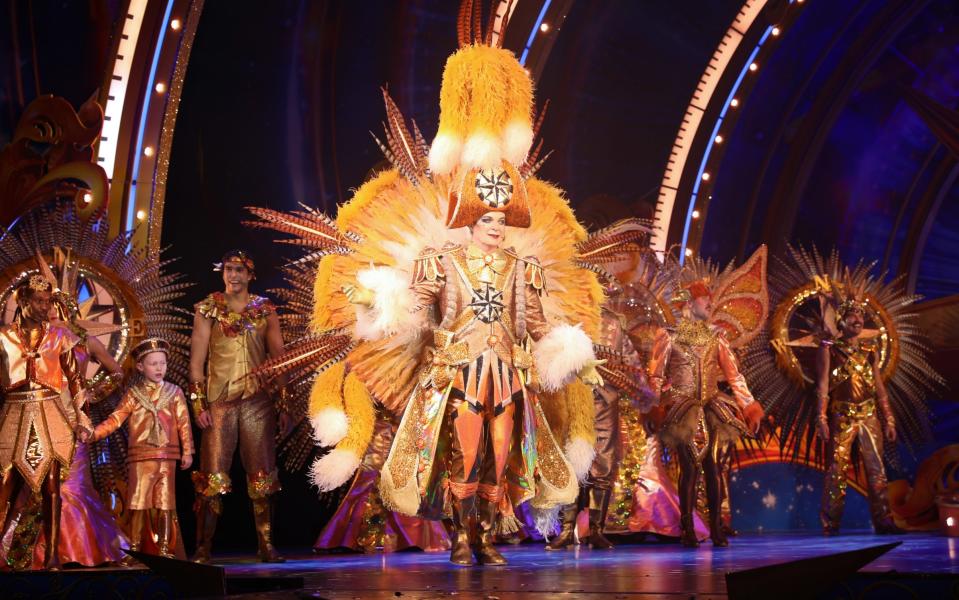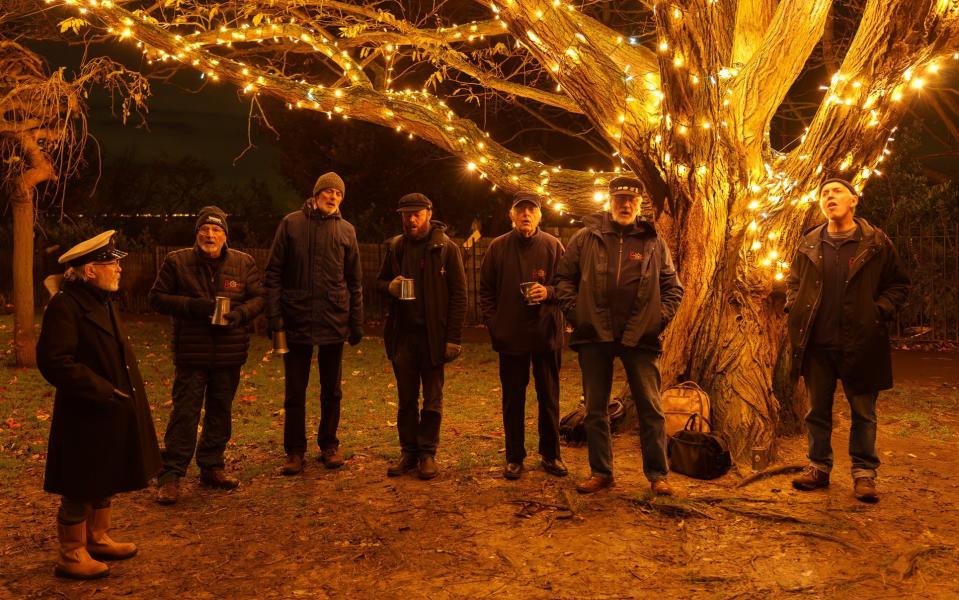Carol singing and sea shanties set to become protected British cultures

British traditions such as Christmas pantomimes, carol singing, cheese rolling and sea shanties could receive protected status under plans to safeguard the country’s cultural heritage.
The public will be asked to nominate which values and traditions should be nominated for protection under the 2023 Unesco Convention for Safeguarding Intangible Cultural Heritage.
The Government confirmed on Saturday that it will ratify the convention, which protects crafts, practices and traditions which give people a sense of identity across the world.
Following ratification people will be asked from spring 2024 to nominate traditions they feel encapsulate British culture and should be preserved.
Traditions up for consideration could also include Highland dancing, bagpipe playing and Welsh valley male voice choirs.
People can also nominate crafts such as basket-weaving, thatching and the art of creating tartan and tweed for protection as part of Britain’s cultural heritage.

Arts and skills such as calligraphy and kilt making could also receive protected status, along with traditions brought to the UK by immigrant communities, including the Notting Hill Carnival and steel-drumming.
The move was welcomed by practitioners of folk traditions, such as the sea shanty.
Tony Prior, of the Hoy Shanty Crew in Leigh-on-Sea, Essex, said: “Raising awareness of folk traditions such as ours is always a good thing and it’s something that should be recognised as valuable.”
But he added that shanty singing, like most folk traditions, evolves over time.
“The shanties we sing today aren’t necessarily the ones that were sung 150 years ago. The PC element has crept in, even with shanties.”
Members of the public will be consulted from Saturday on what values and traditions should be celebrated and how the adjudication process should work for deciding which of those nominated values is chosen.
Those wishing to take part will also be able to nominate celebratory days such as Hogmanay, Burns Night, Shrove Tuesday and the Welsh tradition of Eisteddfodau, where all cultural activities including singing and spoken word are conducted in the Welsh language.

The Department for Digital, Culture, Media & Sport said practices such as these, also referred to as “intangible cultural heritage”, are being considered because of the way that they have been inherited from our ancestors and passed on through generations.
Lord Parkinson, the arts and heritage minister, said: “The UK is rich in traditions which are passed down from generation to generation.
“These crafts, customs, and celebrations have helped to shape our communities and bring people together, who continue to shape them in turn.”
“By ratifying this Convention, we will be able to celebrate treasured traditions from every corner of the UK, support the people who practice them, and ensure they are passed down for future generations to enjoy.”
John Lamont, the UK Government minister for Scotland, added: “Hogmanay, Burns Night and ceilidh dancing are Scottish traditions celebrated across the world and now we will be able to give them recognition alongside those from around the UK as part of this international convention.
“I encourage communities across the country to nominate their local traditions that will be ratified and help to preserve them for generations to come.”
Unesco said its Intangible Cultural Heritage list is designed to allow the more ephemeral aspects of culture to be safeguarded, including “oral traditions, performing arts, social practices, rituals, festive events, knowledge and practices concerning nature and the universe.”
The Department for Digital, Culture, Media and Sport will present the nominations to parliament before officially ratifying the convention with Unesco in the spring of 2024.
Traditions already included on the Unesco protected status list include Argentinian tango and Chinese shadow puppetry, along with Italian dry stone walling and Croatian gingerbread crafting.
More than 30 landmarks across the UK such as the Tower of London, Fountains Abbey and Giant’s Causeway already have Unesco world heritage protection.
York city centre, Birkenhead Park and an iron age settlement in Shetland were put forward by the Government to join the list.

